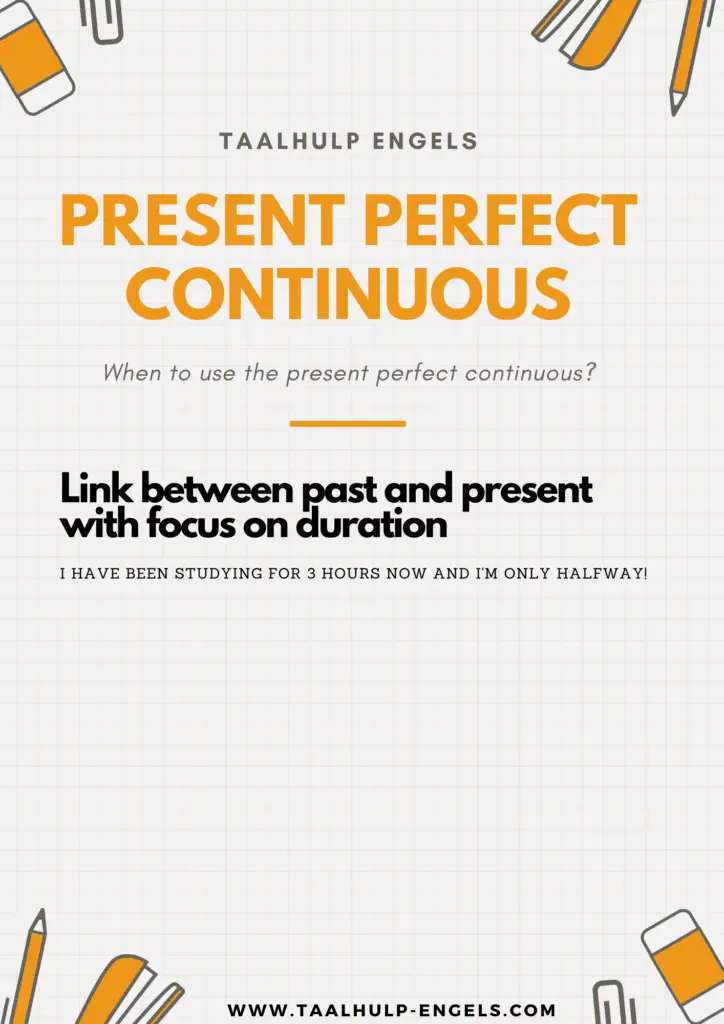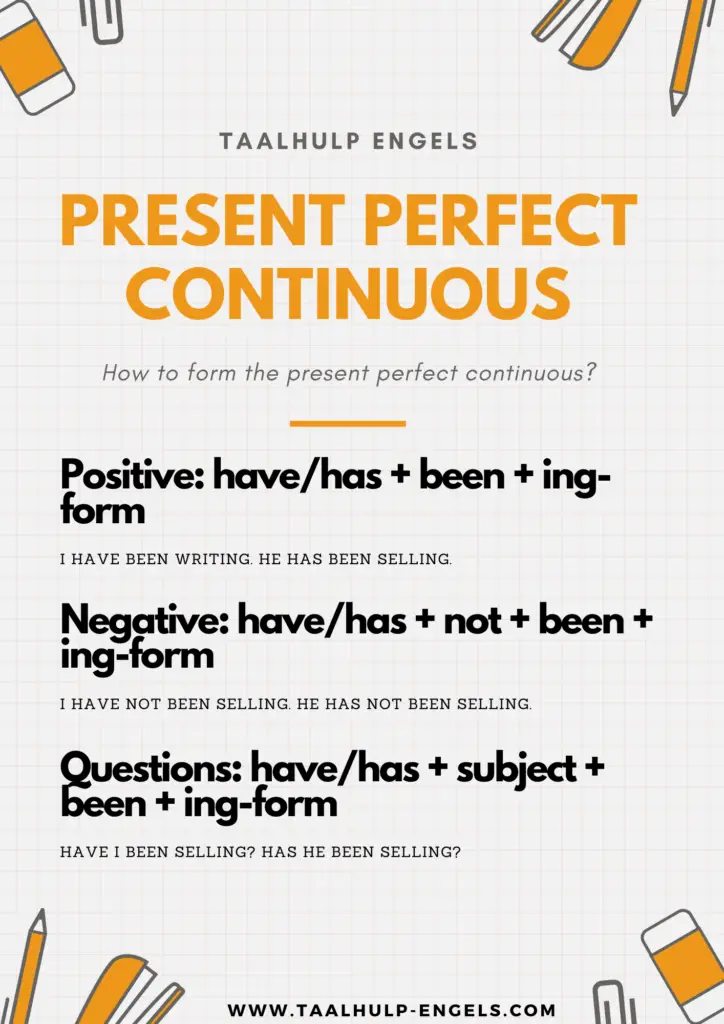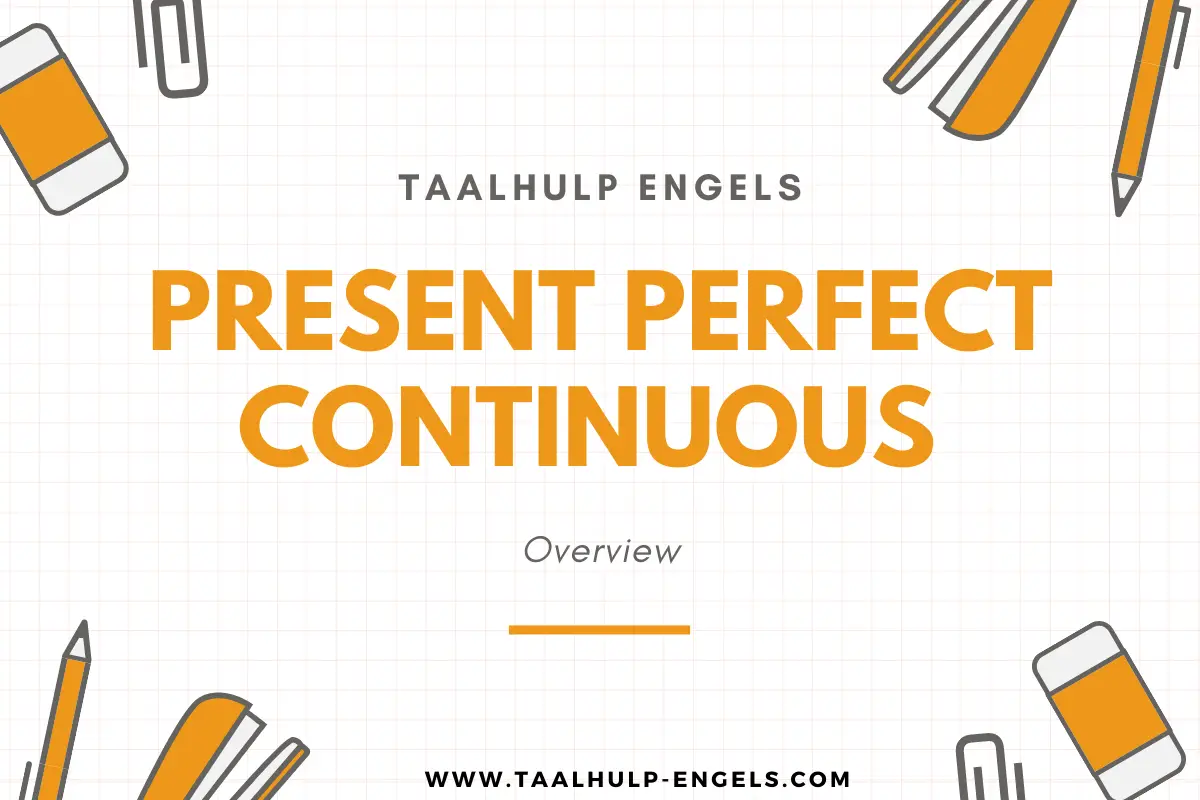The present perfect continuous (or present perfect progressive) is another tense to talk about the present. This tense is similar to the present perfect, but not entirely the same. On this page, you have an overview of when to use this tense and how you form it.
Present perfect continuous tense
You should use the present perfect continuous when there is a clear link between the past and the present and when you want to stress the duration of an action. Below you can find some more information on when to use this tense.
If you are talking about something that started in the past and is still going on or when you can still see the results/effect of that action. Important is that you want to stress the duration of that action
- I have been studying for 3 hours now and I’m only halfway!


How to form the present perfect continuous
Present perfect continuous positive
To form a positive statement in the present perfect continuous (or present perfect progressive), you always need three parts:
have/has + been + ing-form of the main verb
| I have been selling |
| You have been selling |
| He/she/it has been selling |
| We have been selling |
| You have been selling |
| They have been selling |
When an infinitive ends in <e>, you drop the <e> and add <ing>.
- To write: I have been writing.

Present perfect continuous negative
To make the negative form of the present perfect continuous (or present perfect progressive), you need to use ‘not’ and put it after have/has.
| I have not been selling |
| You have not been selling |
| He/she/it has not been selling |
| We have not been selling |
| You have not been selling |
| They have not been selling |
Present perfect continuous questions
If you want to form a question in the present perfect continuous (or present perfect progressive), you need four elements in a particular order:
have/has + subject + been + ing-form of the main verb
| Have I been selling? |
| Have you been selling? |
| Has he/she/it been selling? |
| Have we been selling? |
| Have you been selling? |
| Have they been selling? |
Time indicators
If you see one of these time indicators in a sentence, it might be an indication that you have a present perfect continuous.
- All day, for hours, since 7 April 2020, for weeks, since yesterday
Examples
| Positive | Negative | Questions |
| I have been waiting He has been running | I have not been waiting He has not been running | Have I been waiting? Has he been running? |


Exercises
- Present Perfect Continuous Exercise 1
- Present Perfect Continuous Exercise 2
- Present Perfect Continuous Negative Exercise 1
- Present Perfect Continuous Negative Exercise 2
- Present Perfect Continuous Questions Exercise 1
- Present Perfect Continuous Questions Exercise 2
- Present Perfect Continuous Mixed Exercise 1
- Present Perfect Continuous Mixed Exercise 2
- Present Perfect Continuous Mixed Exercise 3
- Present Perfect Continuous Mixed Exercise 4
- Present Perfect Continuous Mixed Exercise 5


